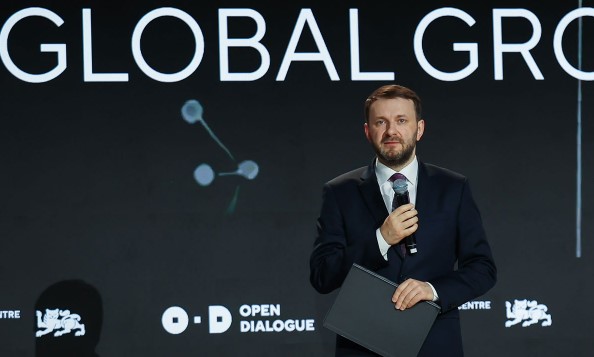
New Delhi [India], September 3: Leading international experts, including representatives from the UN and India, will gather in Vladivostok to discuss the creation of flexible and technologically independent trade institutions amid the transformation of the global economy.
The key issues of overcoming fragmentation and building a new, more equitable architecture for global trade will be the central theme of the expert convening “The Future of the World. A New Platform for Global Growth” in Vladivostok. The event, dedicated to investments in interconnectedness, will bring together leading international specialists at the venue of Russia’s first branch of the National Centre “Russia” to develop practical solutions for rebooting the global trading system.
The Open Dialogue format, initiated by Russia on the instruction of President Vladimir Putin, is evolving into a sustainable ecosystem for generating and implementing breakthrough ideas that meet the challenges of the new era. The upcoming discussion will focus on strengthening Russia’s trade ties with the countries of the World Majority and forming alternative, pressure-resistant mechanisms of cooperation.
The global economy is undergoing profound changes caused by the protectionist and sanctions policies of Western countries, leading to an inevitable restructuring of all international trade mechanisms. As an expert in the “Investments in Interconnectedness” vector, Professor Juan Antonio de Castro de Arespacochaga of Complutense University of Madrid, noted ahead of the event: “Global trade is becoming fragmented, fast, and technology-driven. The need to create a fundamentally new architecture — more flexible, technologically independent, and resilient to external pressure — is more acute than ever.”
Special attention will be paid at the convening to the role of Global South countries and the need for regulatory harmonization. Rupa Chanda, Director of the Trade, Investment, and Innovation Division of the UN ESCAP, will fly from India to Vladivostok specifically to participate in the dialogue.
“It is important to understand what role existing trade agreements can play, what lessons they offer, and what preconditions are needed — for example, digital identities, common standards. The more countries that experiment, the higher the risk of regulatory fragmentation. Therefore, it is essential for Global South countries to work on regulatory convergence,” emphasized Rupa Chanda, who will present a report on overcoming fragmentation in global trade.
Another key speaker from India, Gulshan Sachdeva, Professor at the Jawaharlal Nehru University’s School of International Studies, shared his expectations for the upcoming dialogue: “I look forward to meeting all the experts and hope that our dialogue will be a valuable contribution to shaping the narratives concerning the rapidly changing global order.”
The work of the convening will be structured around three thematic panels, where experts will analyze transformation pathways in detail:
- “Institutional Reboot”: Reforming trade mechanisms for a multi-vector economy;
- “Technological Sovereignty”: Innovations in supply chains, financial settlements, and digital trade;
- “Strategic Opportunities”: Forming new centers of trade attraction and expanding investment ties.
The discussion will be moderated by Maxim Oreshkin, Deputy Head of the Russian Presidential Administration.
Background:
The Open Dialogue is a flagship international platform initiated by Russia to foster a new platform for global growth. The first forum was held in April 2025 in Moscow, bringing together over 100 delegates from 48 countries.

